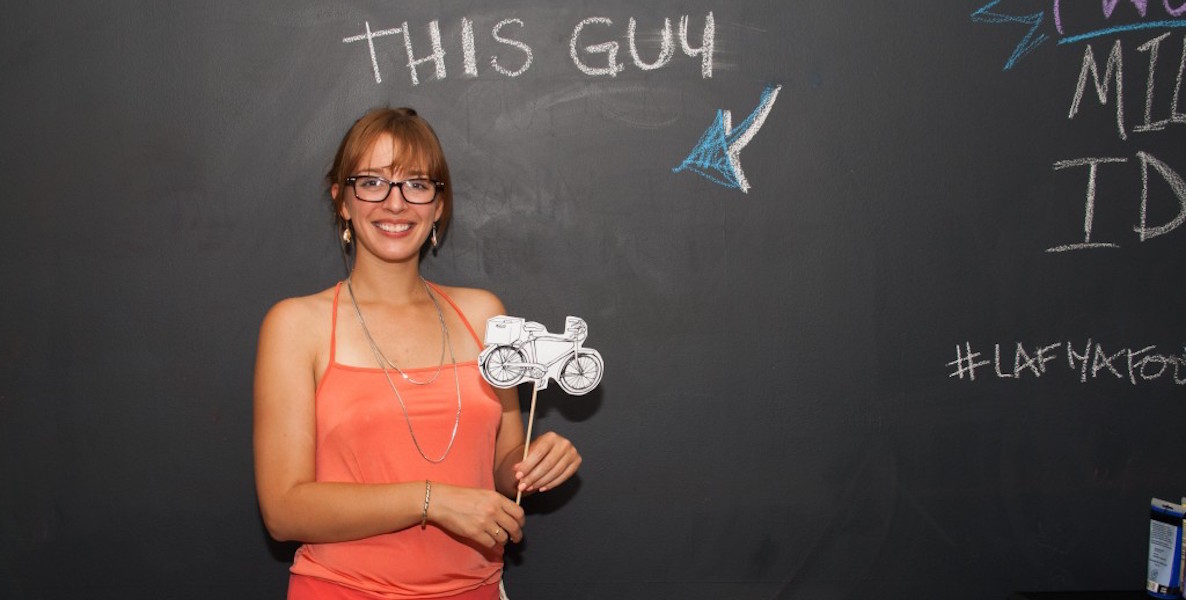As if creating a startup from scratch and propelling it into a crowded market place wasn’t tough enough, how does rethinking the central business model two years in sound? To Morgan Berman, founder of MilkCrate, it sounds like heaven. When we last checked in with the naturally disruptive Berman last August, her then one-year-old My MilkCrate app was carving out a niche as a one-stop shop for anyone wanting to be an environmentally conscious consumer, arming users with an array of nearby businesses that produce and sell locally grown and made products.
In short order, Berman had met the one-stop-shop dream of her grad school thesis on sustainable design at Philadelphia University, and she’d received significant attention for her efforts, taking meetings with senior White House officials and even auditioning for Shark Tank. But late last year, Berman started hearing a different message from her users. Through Craigslist focus groups, social media interactions, and mailing list questionnaires, she heard that her users were overwhelmed by the content MilkCrate was providing and wanted more guidance and rewards for their socially impactful behavior.
“We decided to pivot our business model,” says Berman, “and instead of just giving users options of where to shop, we wanted to reward them, and create something social for them.”
Thus was born “MilkCrate For Communities,” the latest iteration of Berman’s entrepreneurial visions. Rather than simply giving individual users options of where to shop to create an impact, the new interactive platform is now available to groups of people—employees of a corporation, students and staff at a school, or members of nonprofits—allowing them to combine their individual efforts to make a bigger, collective impact.
For example, Philadelphia University is a new MilkCrate client. Students will be able to log on, click to create an account, and be presented with opportunities to make an impact, everything from making reservations at a farm to table restaurant to registering for civic minded on-campus events to signing up for Indego bike share. Users will then accrue points; the rewards program will be tailored to each client, but think of a user with 1,000 points earning, say, Eagles tickets, and someone with a lesser amount of points qualifying for a $20 credit at a (no doubt sustainable) restaurant. Living sustainably, Berman emphasizes, isn’t simply an individual effort but a communal one, something she learned from being open to the feedback of her users.
Rather than simply giving individual users options of where to shop to create an impact, the new interactive platform is now available to groups of people—employees of a corporation, students and staff at a school, or members of nonprofits—allowing them to combine their individual efforts to make a bigger, collective impact.
In essence, MilkCrate did what we hope all businesses will do: listen. “I put a lot of value into feedback,” said Berman. “It was wrenching realizing that what we were doing wasn’t working well enough, but I was eager to figure out how to make it work. I feed off the innovation part of this.” Berman’s willingness to adapt has allowed MilkCrate to grow, not only here, but also in Denver, Boston and Asheville, North Carolina. She laughs when describing MilkCrate as neither “pre- or post-revenue,” because she’s in that limbo stage where checks are about to start flowing in. In part, that’s because MilkCrate for Communities is addressing, as she puts it, particular corporate “pain points.” “Businesses want data for their sustainability programs,” she says. “They want analytics and want to be able to track user data. We can provide that.”
That’s why, though she can’t get too specific, it looks like a partnership with Comcast is in the offing, a development that could drastically increase the company’s reach, particularly in the Philadelphia region.
Next Tuesday at the Benjamin’s Desk co-working space, Berman and her band of five full-time fellow disruptors will gather with MilkCrate’s community members, business owners and environmental activists to launch the MilkCrate for Communities platform. They’ll be celebrating a new product, but they’ll really be acknowledging the power of being open to critique. “I used to have discomfort with criticism,” Berman says. “I’ve learned to challenge that. To succeed, you have to have a little entrepreneurial Zen.”
Photo header: My MilkCrate founder Morgan Berman



